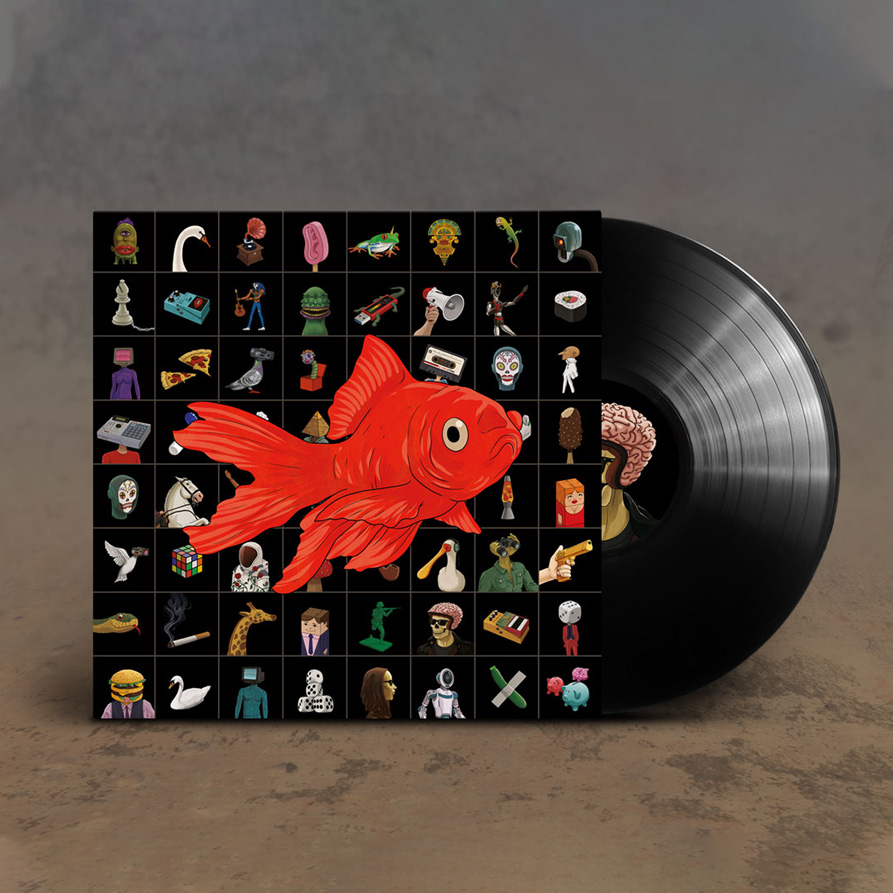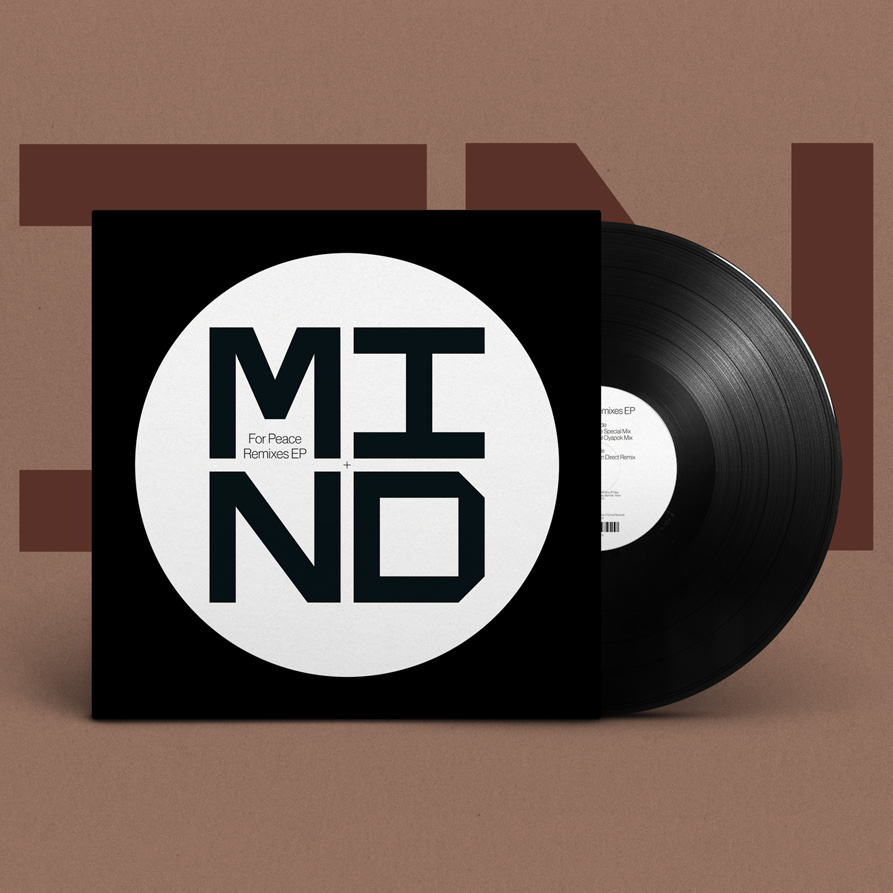
“JE T’AIME MOI NON PLUS.”
Mélanie Chédeville’s Cri d’amour adds to this list of albums that tell a story through characters. The first full-length released under the singer-songwriter’s own name, it does recall 2014’s Sweet Sixtine, a collaboration with Éric Chédeville that also told of a love affair in the style of “je t’aime moi non plus.”
The LP begins with an apostrophe: “Mélanie is talking to you tonight, and she’s fed up.” It is the primitive scene, the initiatory trauma. In the midst of a rave, the heroine sees the one she loves disappear into the neon-lit crowd, which she associates with nothingness, to lose himself in the false pretenses of social platitudes and synthetic paradises. Mélanie was sixteen with a head full of Beethoven and Brahms when she succumbed to an unexpected fascination for the world of Éric, a pianist, composer and sound engineer, who regularly delivered scores for Marc Dorcel’s X-rated films. She evokes him in L’Alpha-bêta and Le Pornographe, through whispered choruses, that would suit the late Julee Cruise or Vanessa Daou to a tee, and explicit allusions to a “sword of Damocles” of “XXL” dimensions.
These are not the only texts on this album that remind us of the Franco-American author Anaïn Nin’s erotic poems, a model that Mélanie willingly takes on, adding to the list of her literary influences alongside Apollinaire and his Debauched Hospodar: “I would not have been able to choose the words, and to create the female character of the record, if I had not drawn from multiple musical and poetic sources.”
She proves this, again, on It’s Not Too Late, built on a sample from Scott Walker’s Montaigu Terrace (In Blue), in which she reveals Éric Chédeville’s voluntary internment after he learned that she was going to leave him. This Folia that ultimately contaminated even the psychiatrist who was supposed to help them is found in the twirling strings of her Belle histoire with the Ulysses-like musician, so well described in an aquatic Nausica that is carried by a choir of sirens.
The orphic journey ends, after thirteen tracks, with Folk Silencio, whose harmonic writing is imbued with a wild romanticism, and whose radiant organs have nothing to envy to Moody Blues classics. Then, with Les Croisés, an epic bolero by way of epilogue, in which the beauty, finally delivered from her torments, comes back to the story to deliver its moral: we must be grateful to the vicissitudes of life, because they teach us much about the power of love.
Some may find this album old-fashioned, which, far from being a flaw, is a credit to the fine musician that Mélanie is. Others will call it a charming album, which is not a bad way to describe it, provided that it is a powerfully relentless charm.
Track Listing
| A1 | Melanie |
| A2 | L’Alpha Beta |
| A3 | It’s Not too Late |
| A4 | Paris |
| A5 | La Folia |
| A6 | Le Pornographe |
| A7 | La belle Histoire |
| B1 | Nausicaa |
| B2 | Le Soleil |
| B3 | Cri D’Amour |
| B4 | C’est Dans L’Air |
| B5 | Folk Silencio |
| B6 | Les Croisés |
new releases

Tite

Tite
Random 8

Mind
Cosmogony Afrodeep remix

Mind
Between Space and Time

Mind
A Dogon Theory Triptyk

Mind
Singles & Remixes

La Boa
Meets Tony Allen

Edoardo Florio di grazia
Ambra e Corallo

Edoardo Florio di grazia
Indossare Il Mare

Edoardo Florio Di Grazia
Ambra e Corallo

Ebo Taylor
Twer Nyame

Ebo Taylor
Twer Nyame

Tony Allen
Jakelewah

Melanie
Cri D’Amour

Ebo Taylor
and The Pelikans


